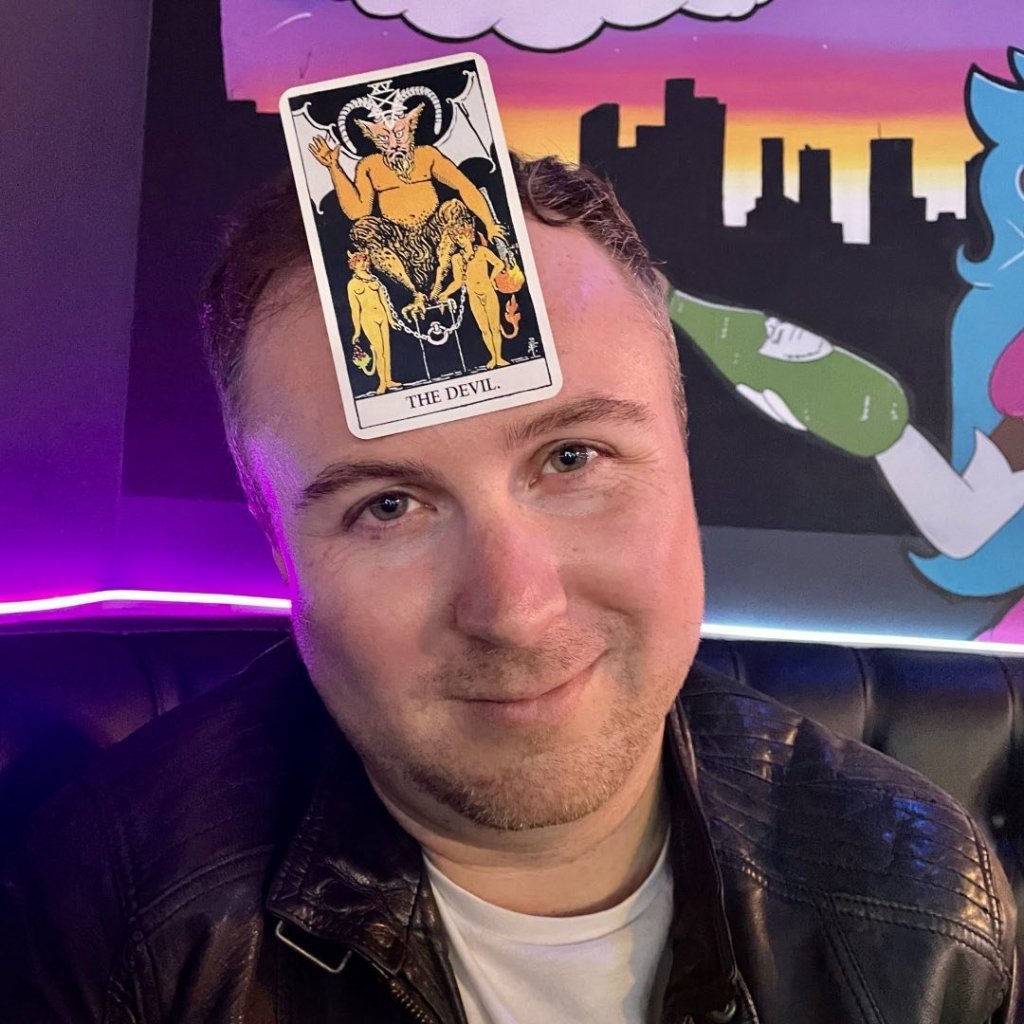Improving USA Network’s “The Anonymous”
One of my favorite shows of 2024 was USA Network’s new reality competition series The Anonymous. In The Anonymous, 12 contestants compete in challenges to add money to a group pot and earn immunity for themselves – alright, so far standard reality competition fare. But its originality emerges at the end of each round, where players enter “Anonymous Mode”: a digital chat room where they communicate with each other anonymously. Instead of communicating by their real names, they choose various “handles” (one player chose their name and avatar to be “Dice”, another one chose “Snake”, etc.)
It’s in Anonymous Mode that the show shines. On other shows like Survivor and Big Brother we tend to only hear the contestants’ true, unfiltered thoughts about each other in private confessionals, away from the earshot of those they’re ranting about. Conversely, in “Anonymous Mode”, players have the anonymity – and thus, the freedom – to express their true thoughts and feelings about each other in an open forum. It creates wonderfully dramatic moments where contestants who think they’re well-liked are directly told the shocking, contrary truth. It’s an undeniably interesting social experiment – even you’re a well-adjusted human that doesn’t take pleasure in watching people’s worlds crumble. Not many other reality competition shows can say the same since Survivor made its debut 25 years ago.
The Anonymous is a show with a fascinating core conceit, but its execution had room for improvement.

One thing that worked well enough was the round-to-round elimination structure. After players air out their dirty laundry in Anonymous Mode, they make nominations. If a player receives even one nomination, they are eligible to be eliminated that round. The twist is that the nominations are revealed one-by-one as a handle nominating a player – for example, if I’m communicating under the handle “Truck” and nominated a player named Cassandra, it would be revealed to the cast as “Truck nominated Cassandra.” This proves to be important because after some time to reconvene and decompress in-person, the players return to their private pods and take a quiz on which player is behind each of the handles in the Anonymous Mode chat. Whoever is matched to their actual handle by the fewest players becomes THE Anonymous and gets the sole vote to eliminate the nominee of their choice.
This is just such a rich, interesting, and original way of structuring eliminations. I have no notes.
I have several notes, however, about how the endgame was structured.
If you’re unfamiliar with the show, take a moment and think to yourself “how should a game like this determine a winner?”
It’s a surprisingly challenging question, and unfortunately the show failed to provide a satisfying answer. At first, nothing was said to the viewers or players about how the endgame would work. About halfway through the season, one of the challenges was a rudimentary psychology game where immunity was placed in a box and players could either take a box from the central table or steal the box of another player. It was unexciting to say the least. So it was disappointing, if not outright shocking, when the show eventually revealed that this challenge would decide the winner of the season once only four players remained. It put a damper on an otherwise compelling new reality competition format.
I knew it was only a matter of time before I got to work hosting my own version of the game, hopefully fixing its flaws in the process. I threw together a sexy sizzle trailer, posted an ad for the game, and got to work.
Competitions – A Format Where Collusion is Permissible
Besides the endgame, the other aspect of the show I thought could be improved was how challenges were integrated into the show. Cooperative challenges designed to add money to a group pot are far too common in reality competition shows nowadays and most of the ones in The Anonymous could be skipped through without missing any character or plot developments. Hence, of the first and one of the easiest decisions I made was that there would be a $500 fixed prize for the winner.
What to do with the once-per-round challenges, then? Hosting basic challenges for immunity also seemed stale, until I realized that this format presented a unique opportunity. Board game-style challenges don’t work as immunity challenges in shows like Survivor and Big Brother because of the possibility that players could collude – i.e., one or more players sabotages their own chance(s) to win the challenge in order to ensure one of their allies wins. To be clear, the reason why this is important to avoid is that those shows already reward players for forming majority alliances, so allowing collusion in challenges would unnecessarily double-reward this. Challenges would become redundant with elimination ceremonies. I think it’s clear that this underlying philosophy is why so many individual immunity challenges on Survivor are done in private stations, lanes, etc. – they’re the only opportunity for players outside the majority alliance to win their safety.
Interestingly, The Anonymous is one of the few reality competition formats where this is not true. Players in The Anonymous have three other opportunities to earn their safety: the nomination ceremony, where they are guaranteed to be safe if they angle their way out of receiving nominations; the handle quiz, where they are guaranteed to be safe if they do the best job creating confusion about their true identity; and lastly, if they avoid being selected for elimination by THE Anonymous.
It’s the second one that’s the most important here. The handle quiz is the show’s main opportunity to pull yourself up by your bootstraps and secure your safety. Concerns about collusion in immunity challenges aren’t as relevant here, since minority players still have a clean opportunity to earn guaranteed safety outside of the challenges.
This opens the door for more game-theoretical, social challenges – similar to the main matches on The Genius and The Devil’s Plan, collusion concerns be damned. If anything, it’s desirable for majority alliances to emerge in these challenges, since they could otherwise operate in secrecy under the anonymous nominations and elimination decisions in this format.
This is the once-per-round challenge structure that I went with. In Round Two, I hosted the Election Game from The Genius‘s first season; in Round Three, the competition was Dead Last, a board game that literally markets itself as a “social collusion” game; in Round Four, the contestants played Zoo Vadis, a political negotiation game with very explicit collusion between players.
Each of these competitions ended up being successful. They created tension and storylines between players that lingered throughout the season. They brought to light which players trusted each other enough to work together, as well as tipping off when players deemed certain relationships disposable. Perhaps most importantly, however, they gave players a window to observe who their fellow contestants truly are. The pressure of the challenges often revealed cracks in the masks that players donned during game nights.
This theme influenced how I eventually structured the endgame.
Endgame – The Masquerade Ball
As mentioned earlier, the question of how to resolve a season of The Anonymous is a challenging one. Many different proposals fail for one reason or another.
- A Survivor-esque jury vote wouldn’t work because the point of the game is that if you’re eliminated you didn’t quite know what was going on in the game, not to mention that it’s too generic for such an otherwise-original format.
- A final challenge doesn’t work because it feels incongruent with the show’s overall premise.
- Giving the players new handles just for the finale round and doing a three-question quiz on those handles would basically be a crapshoot.
The second point is the most interesting. The box challenge that the actual show used as the final challenge seemed out of place with the overall conceit of the show. But this begs the question: what is the show ultimately about?
I think that, fundamentally, The Anonymous is about trying to figure out who people truly are. Players have to cross-reference the words (and nominations) of each other’s Anonymous Mode identities with what they know about the real people they’re interacting with back in the main house. Conversely, it’s also a game about putting on a mask, or even multiple masks, in order to manipulate other people’s perceptions of you.
This sheds some light on what the controversial finale of the original show got right. As anticlimactic as the final box challenge may have been, it succeeded in being thematic since the players did have to read each others’ behaviour – in this case, to determine if another player saw the grand prize when they opened their initial box.
The main issue was that it was too simple. It just wasn’t much of a game at all and made for boring TV. Physical tells definitely exist, but a test of social perception should give players a little bit more to work with.
This newfound clarity helped me craft the ideal endgame structure, which I titled The Masquerade Ball:
- Once four players remain, they must choose a final handle from a menu of handles (pictured below).
- The players would then participate in a series of three games (Incan Gold, Skull, and Stella on Board Game Arena), but they must do so anonymously, under the handle that they chose.
- Victory Points would be awarded based on how well they did in the games.
- The majority of Victory Points, however, were awarded based on a final quiz they took after the games, in which they had to match each finalist to their finale handle, as well as the handles they used throughout the game (more points were awarded for guessing finale handles than for the ones used earlier in the game.)
This hybrid format balances all of the objectives I was seeking to accomplish. I wanted the endgame format to reward the players who could keep themselves anonymous most effectively and the three Masquerade Ball games provided a better venue to test this skill than the box challenge. Nonetheless, there was still a clear incentive not to act too wildly or randomly since there were Victory Points at stake.

It was important that the games were capable of expressing a wide variety of player behaviour and I thought Incan Gold, Skull, and Stella naturally indicated the players’ risk-taking affinity, psychological cunning, and intuition, respectively.
The only thing I would have changed in retrospect was that I would’ve included more games and removed the questions on the final quiz about handles used prior to the finale. If players generally figured out which anonymous handle you were in a certain phase of the game, it damaged your chances of winning in a way that might’ve been insurmountable.
Instead, I would’ve run six games, with players having to choose new handles before the 3rd and 5th games. The final quiz would then only pertain to the three sets of endgame handles.
Minor Experiments
To add a strategic component for players to engage with if they wanted, I also introduced a minor twist in which players received currency based on how well they did in the challenges. They could then use this currency to bid on keys for three vaults each round.
- One vault had nothing inside it (whoever was unfortunate enough to bid on the key for this vault learned which vault would be empty next round.)
- One vault had “The Cloak”, which negated the first nomination made against you that round. The Cloak could be transferred to another player, who would then be stuck with it (in case someone wanted to frame another player as being too keen on bidding for advantages, although this only happened once, to little effect.)
- One vault had “The Dagger”, which broke any ties in your favour for becoming THE Anonymous (the show never discussed the tiebreaking procedure so I said the first tiebreaker would be your score on the quiz and the second tiebreaker would be the time it took you to submit your quiz.)
- The vaults were refreshed each round and their contents were randomized.
Since this was advertised as a somewhat-casual weekly game with communication prohibited between game nights, I wanted a low-impact twist that you could choose not to engage with for little consequence. However, for engaged players who were willing to devote effort and attention for a marginal advantage in the game, it gave them something extra to sink their teeth into.
Lastly, I also gave each player that became THE Anonymous some extra perks. On the show, the producers chose the order in which players were revealed to be safe during each round’s dramatic elimination ceremony. I thought it made sense that whoever becomes THE Anonymous in a round should be the one that chooses the order in which players are revealed safe. I also told them which of the vaults would be empty next round.
Final Thoughts
This was such a fun game to host. I had the privilege of a killer cast that were all fun to watch in the challenges as well as in Anonymous Mode. The format really lends itself to intrigue; it was entertaining and fascinating to watch everyone speculate on which players were behind certain handles in Anonymous Mode.
I was largely happy with the adjustments I made but the success of my fake season is really a testament to the strength and originality of The Anonymous as a concept. I hope we see a second season of the show that tries some new ideas. Especially if some of those ideas are mine!




